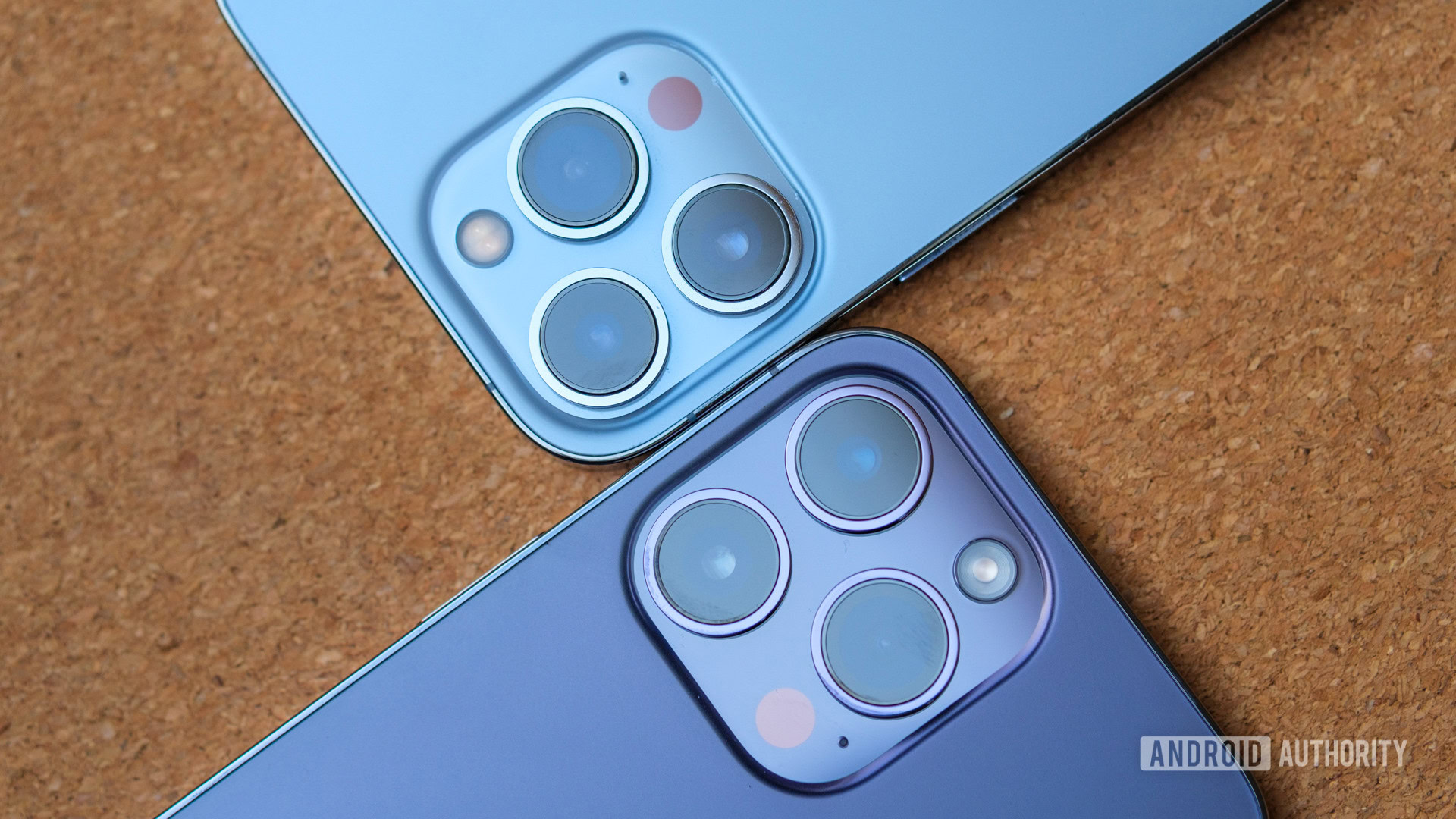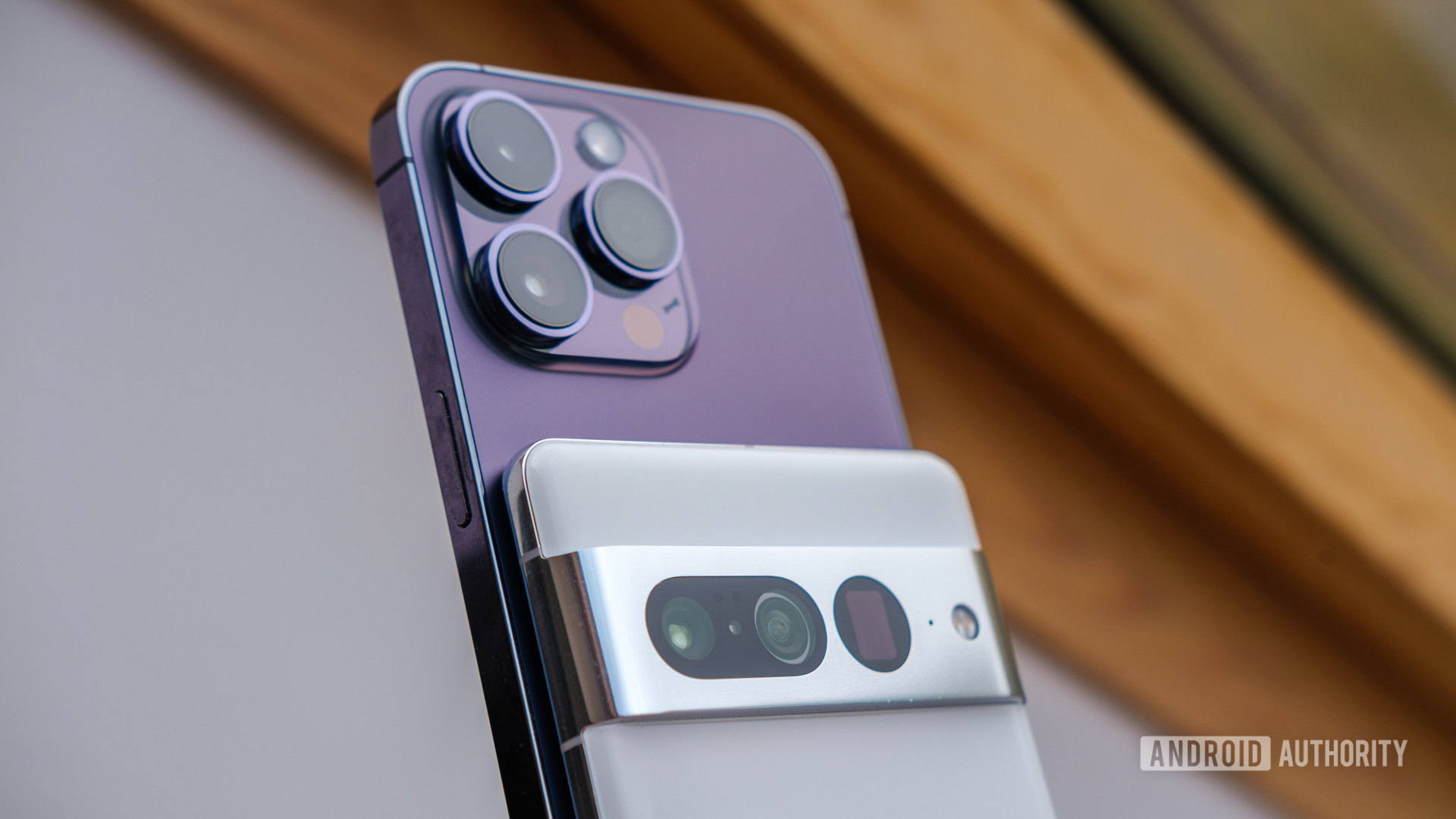Affiliate links on Android Authority may earn us a commission. Learn more.
Apple's iPhone 15 cameras need some major changes to beat the Pixel
August 6, 2023

Based on various leaks and rumors, there’s a lot to look forward to with the upcoming Apple iPhone 15 series. We’re still in for a wait until Apple’s next launch, but we’re already anticipating Lightning to make way for USB-C, universal Qi2 wireless charging, and we may even see rounded corners on at least one of the larger models. This could be the biggest shakeup to the series in years.
But that’s not what piqued my interest. No, I’ve been eyeballing the camera upgrades, as it’s been one of the major hurdles preventing me from dabbling further with Apple’s ecosystem.
“But I thought iPhones had excellent cameras?” I can hear the protests already. But in my experience, recent entries have been disappointing, regardless of which end of the portfolio you look at. While it’s true that the expensive iPhone Pro and Pro Max can grab great-looking snaps when paired with fancy third-party gear and RAW domain editing, the out-of-the-box experience leaves a lot to be desired when compared to the very best camera phones and even more budget fare like the Google Pixel 7. Bottom line, the iPhone 15 is Apple’s chance to regain its camera crown, but it’ll take bigger changes than the rumors currently point to.
What the iPhone 15 camera needs to take the lead

The iPhone 15 series appears to be in store for a number of camera upgrades. We’re still looking at a dual camera array for the iPhone 14 and Plus, while the Pro and Pro Max models will likely sport additional zoom capabilities. The latter is rumored to receive an upgraded periscope lens with 5x or 6x optical zoom capabilities, making the phone more competitive with the Galaxy S23 Ultra at a distance. Furthermore, the series will receive new Sony image sensors, a wider f/1.7 main aperture, and improved LiDAR scanning capabilities for improved depth information.
All good sounding stuff that should address a few of the issues we’ve had with recent entries in the series, particularly in the zoom department and lower light capabilities where the iPhone has been struggling to keep pace with the competition. However, my biggest issue with recent iPhone cameras hasn’t just been the hardware, the software processing is lackluster too. For instance, many pictures I captured with the iPhone 13 and 14 series came out underexposed, with washed-out colors, yellow tints, and harsh, overprocessed skin textures. See for yourself.
While Apple’s Photonic Engine and Deep Fusion imaging capabilities sound fancy (they actually work too, particularly in low light and for zoom), computational photography only shines when the basics are well covered too. Multi-frame HDR and dual ISO sensor technologies used by an increasing number of Android brands, for example, offer capabilities that Apple doesn’t appear to leverage in current-gen models. Apple was slow to integrate pixel-binning capabilities into its cameras and is only just coming around to periscope zoom designs, so it could certainly move faster to adopt cutting-edge camera advancements.
Apple could move faster to adopt the latest hardware.
On the other hand, Qualcomm has improved its Snapdragon image processing pipeline to ensure robust focusing, exposure, RAW domain processing, and support for the latest HDR tech, in addition to powering computational photography. This has benefitted several of its Android partners. Apple is quiet about the inner workings of its Bionic ISP, but there wouldn’t be anything wrong with going back to basics to neaten up the core experience.
While we’re talking about hardware, I wouldn’t mind Apple reversing course on the wide focal length trend. After moving from 26mm to 24mm, the iPhone 14 main camera is now very wide, which isn’t ideal for portrait photography. The current 77mm/3x zoom lens fills in here, but that’s a bit too long. With the rumored move to 5x or 6x from the telephoto, a tighter main focal length closer to 30mm would make the iPhone 15 camera package more versatile and cover a wider range of focal lengths with high quality. Such a change might even beat the competition, but I wouldn’t bank on it, given the industry’s direction of travel.
Apple could do with fixing a few basics before worrying about advancing computational photography.
On the software side, improving the aforementioned exposure and color profiling would be even higher on my list of priorities. Yellow tints and overly cool white balances aren’t a good look in anyone’s book. With that in mind, Apple already has a few neat ideas it should build on to leapfrog the competition.
Photographic Styles, for instance, are great at customizing your look, but the current setup could go further with more stylistic options rather than just cool or warm. I enjoy similar features on the Sony Xperia 1 V and would like to see more phones offer artistic profiles. Apple could go further, allowing photographers to readjust styles post-shot when editing RAW. Although we’ve tracked mixed results from brands that dabble with branded partnerships for color, but a range of profiles that look distinctly Apple could really set the next iPhone apart from its competitors.
A robust camera for any condition

It certainly wouldn’t be desirable for the iPhone 15 cameras to look and function exactly like the competition simply. Differentiation, after all, is what keeps the market interesting. However, my experience with recent Apple cameras is that, while good overall, they don’t quite offer the point-and-shoot consistency of Google’s Pixel and, to a slightly lesser extent, Samsung’s Galaxy flagships.
My main hope for the iPhone 15 series is that virtually every snap I take looks amazing without resorting to “Pro” settings or messing about with RAW. Those features are nice, of course, but we shoot with a smartphone for simplicity and portability. While the expected hardware improvements already look promising, it’ll take equal efforts on the software front to convince me that the iPhone 15 series is a serious contender for the best that Android has to offer, which now includes solid camera phones from HONOR, OPPO, and Xiaomi, in addition to Google and Samsung.
Do you think iPhone cameras live up to the hype?
There’s plenty to learn from rival companies, and the iPhone 15 will need a few fresh ideas if it wants to keep up with and surpass today’s ferocious competition.
Thank you for being part of our community. Read our Comment Policy before posting.